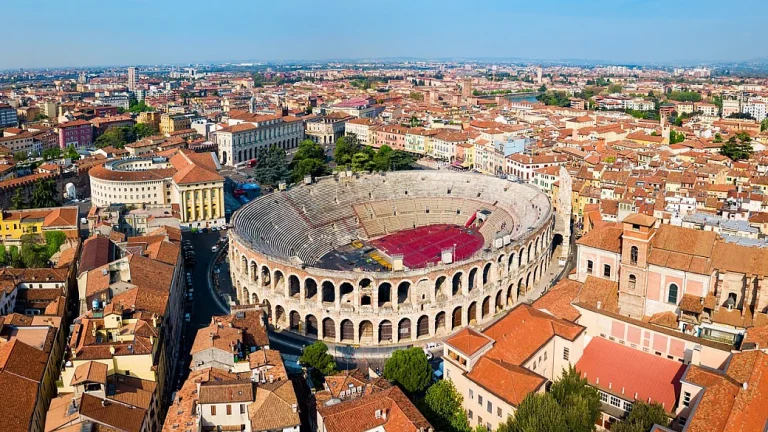Dangote’s Welcome Disruption (Reflecting On The Irony Of Nigerian Petroleum) By Austin Isikhuemen

Austin Isikhuemen | Contributor on politics and business-related topics
In this poem, Dangote’s Welcome Disruption, Austin Isikhuemen AClasses contributor in Lagos, Nigerian reflects on Nigeria’s chronic leadership failures and systemic corruption, contrasting them with Aliko Dangote’s bold, transformative initiative in the oil sector.
Learn How to Leverage Your Story through our Story To Asset Framework.
It criticizes past political and economic mismanagement, especially around Nigeria’s non-functional refineries, while celebrating Dangote’s determination to independently build a world-class refinery despite sabotage from entrenched interests.
The poem portrays Dangote as a visionary who chose efficiency over profiteering, refusing to partake in the culture of theft and compromise. Ultimately, it frames his success as a symbolic and practical victory over a corrupt elite, promising visible change in the lives of ordinary Nigerians.
The Poem As Written By Austin Isikhuemen
He pondered hard, wondering why
His immensely blessed but badly led
Place of birth, endowed beyond measure
Choose to crawl rather than run.
Why did they who chose to lead
Think it’s their turn to steal the till
Make inefficiency their mandate creed
Leaving the country fumbling needlessly.
Didn’t he attempt to savage the oil sector?
Bought our moribund refineries that refined zero
With a massive headcount of workers without work
Turn the indolent behemoth around for the good of all?
Stopped midstream by political buccaneers
After buying the decrepit cesspits of interminable TAMs
Nigeria went back to its profligate ways
Making billionaires of thieves and speculators.
Dangote chose the “impossible” road less traveled
Built a refinery the world has never seen
Creating his port, paving his roads, generating his power
No mountain did he not climb in the quest to get us fuel.
Didn’t they try to stop him again?
The savage cabal of old that kept us prostrate
Created a subterfuge of Sulphur content
Last gasp to continue their drain of our wealth!
But Dangote is here producing the best
Not for him the blending subterfuge
They rushed to do in the watering hole
They turned Port Harcourt over the years.
Don’t ask me who will laugh last
In this race of thievery against efficiency
The winner is as clear as noonday
You’ll see his trucks soon in your ‘hood.
They will lick their wounds aloud
Wanting to recruit us to join their fight
When with us, they shared no loot
Before Jagaban removed their spoon!
End of the poem by Austin Isikhuemen
Who is Dangote?
Aliko Dangote is a prominent Nigerian businessman and philanthropist, best known as the founder and CEO of the Dangote Group, one of Africa’s largest industrial conglomerates.
See also Time’s Interview With Aliko Dangote, The Richest Man In Africa
Born in Kano in 1957 into a wealthy trading family, Dangote was inspired early on by his grandfather’s entrepreneurial example. After studying business at Al-Azhar University in Cairo, he launched a cement and commodities trading firm in 1977 with a loan from his uncle.
Over the decades, he expanded his business empire to include cement, sugar, salt, flour, and logistics across Nigeria and other African countries. His most ambitious venture is the Dangote Refinery in Lagos, the largest in Africa, which he began building in 2013 to address Nigeria’s dependency on imported fuel.
Despite numerous obstacles, the refinery opened in 2023, promising a transformative impact on Nigeria’s economy and energy sector.
The Irony Of Nigeria’s Dependency On Fuel Importation
The irony of Nigeria’s dependence on fuel imports is stark: despite being Africa’s largest oil producer, the country imports a significant portion of its refined petroleum products.
In 2023, Nigeria imported 20.3 billion liters of petrol, costing approximately ₦7.5 trillion ($9.7 billion). This reliance persists even as Nigeria produces about 2.7% of the world’s oil supply. The Dangote Refinery, Africa’s largest single-train refinery with a capacity of 650,000 barrels per day, began operations in 2023.
See also Remembering Nitel And Nipost A Wake-Up Call For Nnpc By Austin Isikhuemen
However, challenges such as logistical issues, supply chain inefficiencies, and regulatory hurdles have hindered its ability to meet domestic demand fully. Consequently, Nigeria continues to spend substantial amounts on fuel imports, highlighting a paradox where an oil-rich nation remains a net importer of refined petroleum products.
Better Leadership And Management Of Nigerian Resources
The solution lies in strong leadership and effective management of Nigeria’s oil sector and other local resources to ensure they are harnessed for the benefit and well-being of its citizens.
A well-managed Nigerian oil sector has the potential to significantly improve both the lives of Nigerians and the broader economy by reducing fuel importation costs, stabilizing energy supply, and boosting domestic production and employment.
With Nigeria spending billions annually on importing refined petroleum ₦1.5 trillion in Q1 2025, a self-sufficient refining industry could redirect these funds into infrastructure, healthcare, and education.
Additionally, effective regulation, transparency, and reinvestment of oil revenues can create jobs, lower fuel prices, and enhance industrial productivity. By leveraging its vast oil reserves through efficient local refining and value addition, Nigeria could reduce poverty, increase foreign exchange earnings through exports, and foster economic diversification beyond oil.
Learn How to Leverage Your Story through our Story To Asset Framework.





